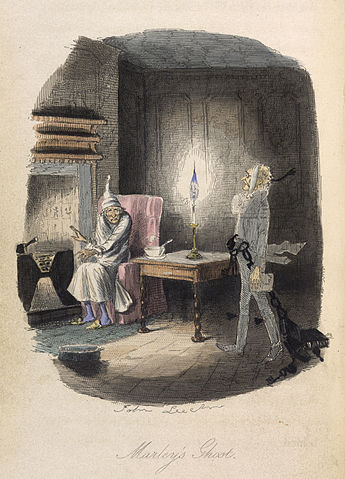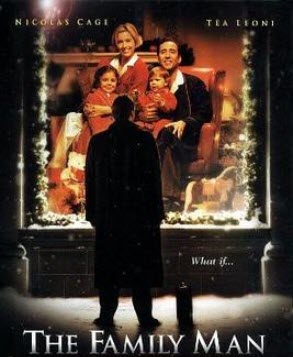In my last blog post I talked about the possibility of multi-universes where every choice we make creates a branch into a parallel universe. While such ambiguity can be demonstrated in the quantum world, it’s not the reality that any of us experience in our real lives. We must make a choice and then we experience only the consequences that flow from that choice. So what distinguishes a good choice from a poor one?
Countless short stories, poems, books, movies and theater pieces have used the idea of an alternate universe to explore this question. I want to share a few of my favorites here and explore what they might tell us about the criteria for good choices. In my next post I’ll look at a couple of others that are based on the idea of multiple parallel universes.
Goethe’s entire life was based on a willingness to get out of his comfort zone and ask the question “what if?” In his poem Perseverance, he talks about the importance of sowing the seeds that will yield the flowers of a satisfying and meaningful life:
We must not hope to be mowers,
And to gather the ripe gold ears,
Unless we have first been sowers,
And watered the furrows with our tears.
It is not just as we take it,
This mystical world of ours,
Life’s field will yield as we make it
A harvest of thorns or of flowers.

It is never certain that those seeds will blossom into the results we hope for. We must be willing to take risks in making our life choices. The very nature of risks means that there will sometimes be failures and disappointments. Goethe reminds us that it is our very tears of sorrow and regret that nurture the remaining seeds to grow into a harvest of flowers. The unwillingness to take risks means that, at the end of our life, we will only have “a harvest of thorns”.
The harvesting of what we have sown in our life forms the central theme of the well known book written by Charles Dickens in 1843: A Christmas Carol. The central character, Ebenezer Scrooge, has lived a selfish life where his choices were governed by making as much money as possible, exploiting his employees and ignoring the plight of the less fortunate people around him. When his business partner Marley died, Scrooge didn’t even attend his funeral.
The story begins on Christmas eve. Suddenly the ghost of Marley appears, dragging heavy chains. He tells Scrooge that the consequences for his past choices will be to spend all eternity dragging even heavier chains – unless he changes his ways. Marley tells Scrooge that he will be visited by three further ghosts who will show him the consequences of his past choices.
The first is the Ghost of Christmas Past who takes him back to his childhood and early adult years when he chose to ignore his sister and focused so much on making as much money as possible that his fiancée, Belle, ends their relationship. Scrooge is forced to listen to Belle’s very unflattering description of what he has become on the Christmas Eve that Marley died.

Scrooge is mortified to hear what others said and thought about him and begs the ghost to release him from the visits of the other ghosts. It is to no avail as the Ghost of Christmas Past is replaced by the Ghost of Christmas Present.
This ghost takes Scrooge to the home of his office clerk, Bob Cratchit. There he sees Cratchit’s seriously ill son, Tiny Tim. Scrooge learns that Tiny Tim will die because Scrooge refuses to pay Cratchit a fair wage for his work – meaning he cannot afford to pay for adequate care.
Then the Ghost of Christmas Yet To Come shows people talking shortly after Scrooge has died. He hears local businessmen who say they are going to his funeral only because lunch will be provided. A poor couple who are having trouble repaying Scrooge a small amount of money with a large amount of interest are rejoicing that he has died because they will now have a little more time to put their finances in order. He sees Bob Cratchit and his family mourning the death of of their dear Tiny Tim. At the end, Scrooge is forced to look at a sadly neglected grave with his name on the tombstone.
When Scrooge awakens, he discovers that it is still Christmas Day and that Tiny Tim is still alive. Scrooge enters joyfully into this alternate universe where he now gives Cratchit an increase in pay and becomes a father figure to Tiny Tim. Scrooge resolves from that moment on to treat everyone with kindness, generosity and compassion. We, the readers, are left to assume that Scrooge will be praised and missed when his death eventually comes.
I feel that Dicken’s story line extends Goethe’s idea of perseverance very well. It is how we respond to our inevitable failures that ultimately makes the difference in whether we harvest thorns or flowers at the end of our life. In other words, as long as we are alive, it’s never too late to change our choices to ones based on compassion and love.
It is said that we are often our own worst critics. Philip Van Doren Stern wrote a short story in 1943 called The Greatest Gift that was based on the ideas in Dicken’s novel. In his story, he used an alternate universe in which the central character could see that he had made good choices in the past because they were based on compassion and caring. His present difficulties simply reflected the challenges of his past risk taking. The story became the basis for Frank Capra’s 1946 movie It’s a Wonderful Life, recognized by the American Film Institute as the most inspirational American film of all time.
George Bailey, the central character, is contemplating suicide because of an emerging scandal and criminal charges related to missing Building and Loan cash for which he was responsible. George’s guardian angel, Clarence Odbody, intervenes and takes George into an alternate universe where he had never been born. He discovers that the sacrifices he made in order to “do the right thing” as he saw it made the world a little bit better place. The lost opportunities and attacks by unscrupulous people were simply the unavoidable costs of leading an ethical and moral life. With this insight, Clarence returns George to his present choice of jumping off the bridge or not. George chooses to stay with life and races home to his wife and children. Things have all worked out for the best after all and George realizes the meaning of the line in Goethe’s poem where he writes that “we have first been sowers and watered the furrows with tears.”
What if we made our choices based on our arrogance that we “knew” what the important values in life really were – such as making insane amounts of money, having access to many sexual partners, or exerting great power over others? An alternate universe was the basis for exploring this question in The Family Man.
The movie starts with Jack making the choice to ignore his fiancée Kate’s plea to not go to a year-long internship in London but rather to get married right away. Jack is sure that the opportunity in London will open the door to making lots of money, implying that that is more important than their relationship.
We then see Jack thirteen years later in a very expensive penthouse with a beautiful woman – clearly one of many for Jack. He is incredibly rich and working on a stock merger that will be worth millions of dollars in commission fees.

A curious figure named Cash appears and takes Jack into an alternate universe where he returned to Kate on the next available flight and they did get married. Although never made explicitly clear, Cash seems to be some kind of angel like Clarence in Capra’s film.
Much of the movie focuses on Jack’s confusion and attempts to make sense out of what is happening. He tries some of techniques that worked in his “real” life but finds the results are no longer satisfying. When he begins to really enjoy his life with Kate and their children, Cash returns and takes Jack back to his first alternate universe where he awakens in his penthouse apartment. Like Scrooge in A Christmas Carol, Jack discovers that no time has passed in this universe since he left it and it is still Christmas morning.
He discovers that Kate has become a successful and very rich lawyer. When he finds out that Kate is planning to move to Paris, he abandons his plan to fly to Aspen, Colorado to close his multi-million dollar stock deal and races to find Kate at the airport where he pleads with her not to board her flight but to just have a coffee together. The movie closes with them chatting in a bar and considering new choices.
This idea of shifting the value basis of our decisions is, perhaps, what Goethe meant with the lines “it is not just as we take it, this mystical world of ours.” Good choices are based on compassionate giving rather than arrogantly taking all that we can.
In my next post I will talk about a theater piece and another movie that uses parallel universes to explore the basis for good choices.


Pingback: What If I Had Made a Different Choice? – Voight Post Script